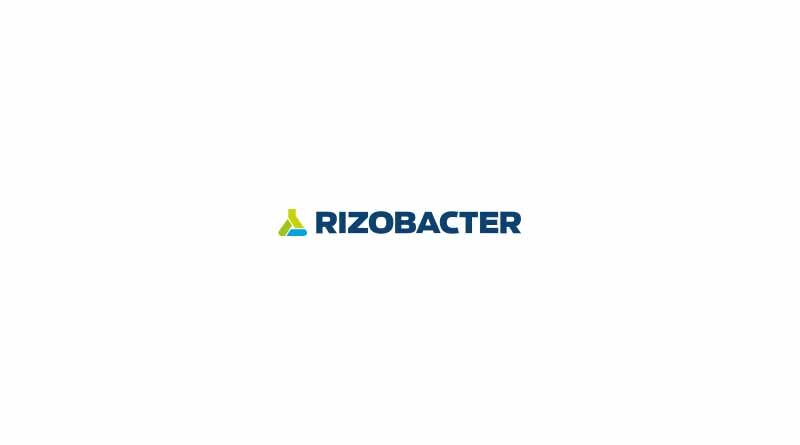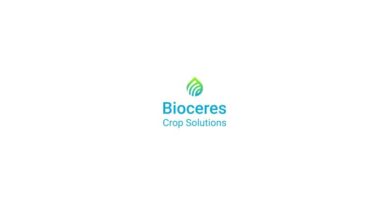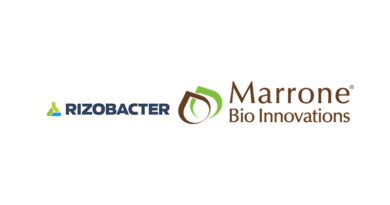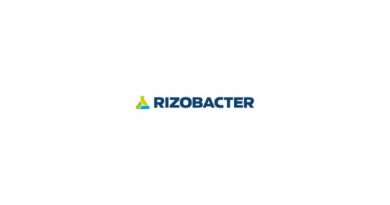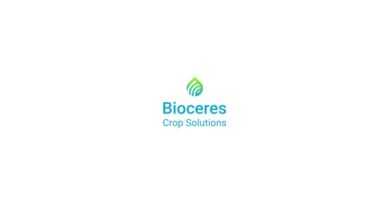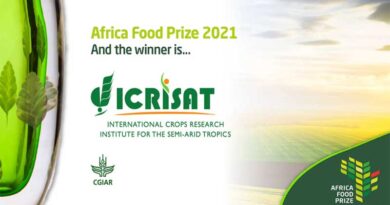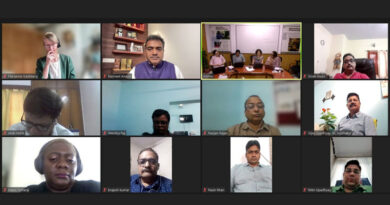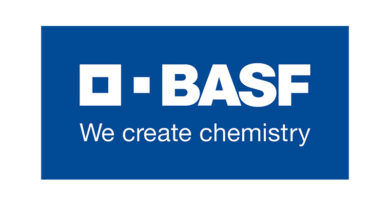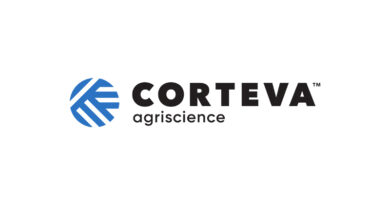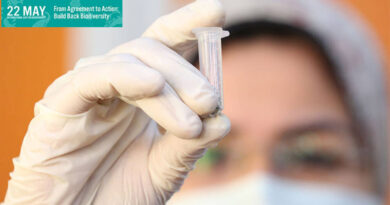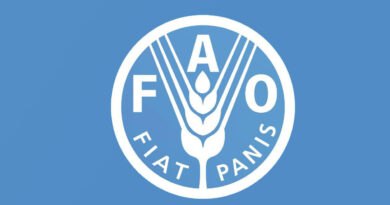From a garage in the Argentinian Pampas to NASDAQ
10 August 2021, UK: Interview with Rizobacter’s CEO, Ricardo Yapur
Rizobacter is a company that dared to dream big. It was born 44 years ago in a garage with the production of inoculants to accompany the incipient soybean crop in Argentina. Today, it has become a global company, a leader in the biologicals segment, capable of researching and developing efficient solutions for a sustainable agriculture. Rizobacter is today an important piece in the Bioceres Crop Solutions group, which is listed on NASDAQ and aims to be a fully integrated global provider of productivity solutions designed to transition agriculture to carbon neutrality.
1. What are your company’s main businesses? What is the most important product line under each business sector? Which are product(s) or product category the company is focusing on at the moment?
We specialize in biologicals through a portfolio that includes inoculants for legumes, biostimulants and biocontrol products. Here lies the core of our business and is the main focus of our company. Today we are one of the five largest biologicals companies in the world.
To complement biological nutrition, we add specialty fertilizers to our proposal, which guarantee efficient, precise, and balanced nutrition at key stages of the crops. Our investment in microgranule technology is the main growth lever in this line.
In recent years we have grown strongly in the line of tank-mix adjuvants with technologies that improve the efficiency of agrochemical applications with the aim of reducing environmental impact. We recently inaugurated the largest laboratory in Latin America for the evaluation of adjuvants and formulations, a leap in our offer of technologies and services with the aim of improving spraying operations.
2. Rizobacter occupies more than 20% of the global inoculant market, which is an impressive achievement. Could you brief us on the current development of the global inoculant market? What do you think is the reason why Rizobacter can maintain its leading position in this field?
The latest estimates show that the inoculants market had a value of USD 440 M in 2020 with an annual growth of close to 10%. Inoculants are an essential input to maximize biological nitrogen fixation, a natural process with multiple benefits. There are growth opportunities by increasing the inoculation rate as well as by incorporating a higher proportion of legumes in crop rotations seeking greater sustainability of farming systems.
I believe that the reasons for our growth are due to pillars that the company has sustained since its inception: customer centricity, constant and high investment in research (30% of profits); a strong commitment to quality in development and production processes and a dynamic management that allowed us to adapt to changes. We work under a sustainable management system, with an integrated quality policy certified by the international standards ISO 9001: 2015, ISO 14001: 2015 and OHSAS 18001: 2007. In 2019 we started the path towards the certification of the Carbon Footprint of our plants under the framework of the ISO 14064 standard.
In 1977, our founder, Miguel Harnan, had a dream, which at that time seemed far-fetched, but still managed to ‘inoculate’ us with his enthusiasm. Above all, he managed to transfer to us the values that persist and that brought us here, and I trust they will take us further. Focus on quality, dare to dream and act accordingly, permanent reinvestment and persistence, these are values that are non-negotiable in our organization.
3. Rizobacter operates in more than 40 countries, which regions have been covered? Which region(s) will be the next focus of Rizobacter? How much do exports account for the company’s total revenue? What is the company’s long-term growth plan for the export business?
We currently have 8 subsidiaries located in Brazil, Paraguay, Bolivia, Colombia, the United States, South Africa and France and we are commercially present in more than 40 countries on 5 continents.
For this fiscal year, we estimate that 28% of our turnover will come from international trade, which would represent about USD 50 M. Our goal in the short-term is to reach 30%.
The most geographically developed business that we have today is inoculants and it represents a challenge. Although the adoption rate of the inoculation practice is very high in Latin America, the same does not happen in all regions, we still have a lot to grow.
In the future we seek to continue strengthening our presence in current countries and enter new markets such as China. We are a global company and are investing resources to expand our team and be closer to our clients, not only with the best technologies but also with a unique service. Our ultimate goal is to add value for our clients.
4. From the company’s development history we can learn that choosing the right business partner is very important to Rizobacter. Could you please share with us the company’s principle of choosing partners?
At Rizobacter we like the saying, “alone we go fast, but together we go far”. We are totally convinced that alliances have been and are essential for our growth. We carry out co-development and commercial agreements with leading companies such as Momentive, Zschimmer & Schwarz, De Sangosse, Marrone Bio Innovations, Syngenta, Nufarm, Saatbau Linz and Corteva among others, where we look for synergies and win-win long-term partnerships.
With Syngenta, for example, we combine our offer in some markets, commercializing packs for seed treatment that combine our inoculants and their seedcare products. We have also actively collaborated on the ready-to-use seed concept with Long-Life Inoculant technology (LLI). More recently, we have formed an alliance for the provision of soybean inoculants in Eastern Europe. Another example of the harmony between both organizations is that the Seedcare Institute in Argentina is located in the Rizobacter facilities.
Agreements with other companies or research institutions are doors to learning and that has really allowed us to grow in a way we could never have by ourselves.
One of our most outstanding technologies in recent years is a Trichoderma-based biofungicide that was developed in conjunction with INTA (National Institute of Agricultural Technology in Argentina). We are going global with it for use in wheat, soybean, rice among other crops and it is positioned as a complement or an alternative to products of chemical synthesis.
These are just a few examples that show the value of alliances in our history.
5. It has been five years since Rizobacter was acquired by Bioceres, and we were curious to know how the two companies merged their respective advantages together and exerted synergies. Bioceres has now entered the capital market, what impact will this has on Rizobacter’s future development?
Bioceres and Rizobacter, before being part of the same group, were already companies that had the same vision about agriculture and the importance of science and research to generate innovations that improve the sustainability of our food production systems.
After the acquisition, that vision was strengthened and today we articulate the projects and new developments very well to become a conglomerate of companies that is occupying a preponderant place in the industry. Bioceres Crop Solutions has the vision of becoming a fully integrated global provider of crop productivity solutions designed to transition agriculture to carbon neutrality. Rizobacter has a lot to contribute to that mission. Our biological technologies increase biodiversity and improve the resilience of agricultural production environments. In addition, they increase carbon sequestration, the content of organic matter in soils and make crops more resilient to cope with climate change.
Federico Trucco, CEO of Bioceres, is a leader with a remarkable vision of the future, that made it easier for us to integrate and find synergies within the group. Rizobacter plays an important role in a production model that will allow end-to-end traceability so that consumers know exactly what they are consuming and decide whether they want to consume it. And that denotes something that we should never lose sight of, at the center of everything is society.
Entering the capital market required a lot of effort and work because it is another way of organizing the company’s processes, but it is a path that we have been following successfully and we are thrilled by the opportunities it offers to fuel our growth plans.
6. The agricultural biological market has experienced explosive growth in recent years. As a leading biological company, Rizobacter has been witnessing firsthand the revolution of this industry. How do you feel about these changes?
Reviewing the history of our company I can feel nothing but satisfaction and enormous pride. I think we took the right path, full of challenges, but that at the end of the day you feel that they were worth it and that you would do it again.
We started four partners in a garage, trying to develop a product for soybean when there was still no market in Argentina but with a leader who knew how to motivate us in such a way that nothing seemed impossible. We would never have imagined that today we would be part of a group trading in Nasdaq. I believe that Rizobacter is one of those stories that can inspire other entrepreneurs, to take risks and to know that dreams, desire, effort, constant investment and persistence are powerful and unstoppable forces.
It also gives me great satisfaction to belong to a sector that works to obtain the best results based on science and technology and in tune with nature.
7. What are the company’s short-term and long-term development plans? What are your expectations for the future of the company?
Expansion in the international market is one of the keys of Rizobacter’s future growth. In the next 5 years we intend to achieve strong growth in Brazil and the United States, where we plan to invest in manufacturing capabilities to respond to specific local market needs.
Growth expectations are driven by several factors. Our biological technologies are friendly to the environment, improve the quality and yields of crops and are safe for the producer and consumers. These are combined with the greater food demand by a growing population and the regulatory directives to reduce the use of chemicals.
New technologies of inoculants, biostimulants and biocontrol will allow us to take a new qualitative leap in the biologicals segment. We also plan to grow in our adjuvants and specialty fertilizers business, which are the other two lines of great potential that make up our portfolio and that we have strengthened in recent years. We will continue to innovate to improve our portfolio, either by our own means or in association with others. We are still agile in our decision-making process and that is one of our competitive advantages.
In a nutshell, our expectation for the future is to continue responding to the growing demand for safe food, promoting an efficient and sustainable production system, making use of the best science and the alliances that we have with public entities, companies, and farmers around the world.

